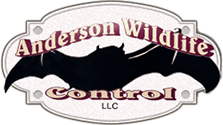Encountering nuisance animals like raccoons, squirrels, skunks, and groundhogs around your property can be frustrating and even hazardous. While it’s tempting to seek quick solutions, it’s crucial to address wildlife issues using humane methods that prioritize both animal welfare and environmental preservation. At Anderson Wildlife Control, we specialize in safe and effective removal techniques that minimize harm and promote coexistence with local wildlife.
Why Humane Wildlife Control Matters
Wildlife plays an essential role in our ecosystem, and removing animals in a cruel or harmful manner can disrupt natural balance. Many traditional removal methods, such as traps that harm or kill, are not only inhumane but can also have unintended consequences. Humane approaches ensure that animals are treated with respect while effectively addressing the problems they may cause to your property.
By choosing humane removal techniques, you:
- Protect local ecosystems: Animals like groundhogs and squirrels contribute to soil aeration and seed dispersal, benefiting plant life.
- Avoid unnecessary suffering: Ethical solutions prevent injury and stress to the animals.
- Reduce recurrence: Humane methods focus on addressing the root causes of infestations to prevent animals from returning.
Safe and Humane Removal Techniques
At Anderson Wildlife Control, we use industry-approved, humane strategies to deal with nuisance wildlife while ensuring their well-being and safety. Some of our effective techniques include:
- Live Trapping and Relocation: We use specially designed traps that capture animals without causing injury, allowing them to be safely relocated to suitable habitats far from your property. This method is ideal for raccoons, skunks, and groundhogs that may have taken up residence in attics, sheds, or under porches.
- Exclusion Methods: Preventing re-entry is a critical component of humane wildlife control. We install exclusion barriers such as chimney caps, vent covers, and sealing entry points to deter animals from returning without harming them.
- Habitat Modification: Modifying your property to make it less attractive to wildlife is another humane strategy. This includes securing garbage bins, trimming overgrown vegetation, and removing food sources such as pet food left outdoors.
- One-Way Doors: For animals like squirrels that nest in attics, we utilize one-way doors that allow them to exit but prevent re-entry, encouraging them to relocate naturally without stress.
The Long-Term Benefits of Humane Wildlife Control
Choosing humane methods not only resolves immediate wildlife issues but also promotes long-term solutions by addressing the reasons animals are drawn to your property in the first place. Additionally, humane approaches help foster a more positive relationship with local wildlife and reduce conflicts in the future.
If you’re dealing with nuisance wildlife, trust Anderson Wildlife Control for compassionate, professional, and effective removal solutions. Contact us today to learn more about our humane wildlife management services and how we can help you maintain a wildlife-free home—ethically and responsibly.








